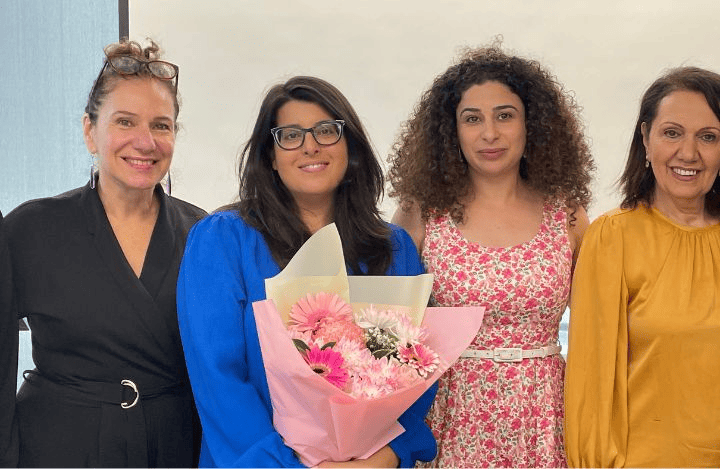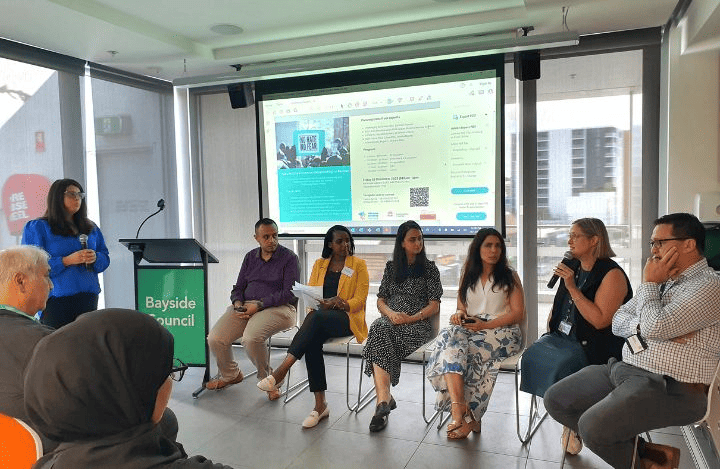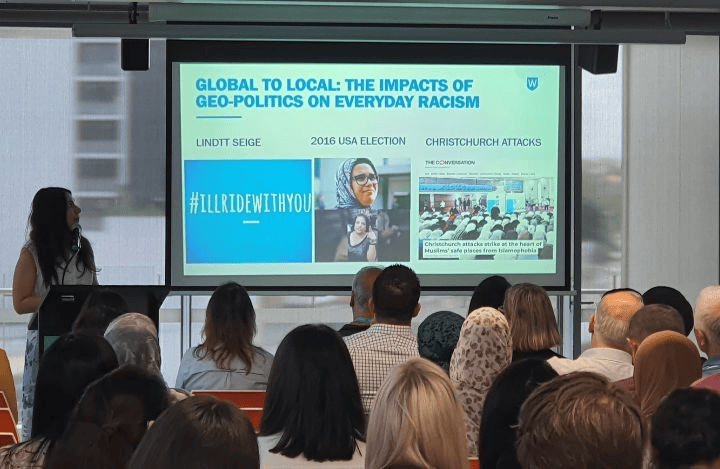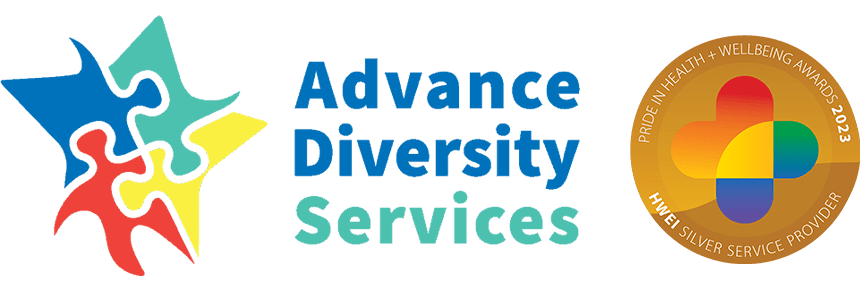Reports of increased racism and harassment in the local community since the recent eruption of the Israel-Gaza war prompted a community forum held at Rockdale Library on December 15.
The Responding to Racism forum was organised by Advance Diversity Services (ADS), Department of Communities and Justice (DCJ), and The Challenging Racism Project (Western Sydney University) and attracted 56 participants – all eager to discuss how to combat escalating racism in their local areas.
Joumana Nassour, an Arabic language and community worker and broadcaster for Ahlul-beit Radio, shared her recent experience of racism and highlighted the need for a community response. Ms Nassour is one of several Muslim women in the St George Area who have been verbally attacked while wearing hijab, and who have begun to fear for their own and their children’s safety.
Executive Director of the Islamophobia Register Sharara Attai said there had been a 13-fold increase in reports of Islamophobia since October 7 – with reports of arson at mosques, death threats, videos inciting violence and intimidation on the road.
‘We are seeing an alarming level of Islamophobia with many members of the Australian Muslim community feeling very scared and anxious for their safety. It is devastating that at a time when many members of the Australian Muslim community are already deeply affected by the horrors of what is occurring in Gaza, they are also having to deal with increasing hostility here at home.’
Ms Attai said that at no time in its nine-year history of operations, had the Register received such a large number of incident reports in such a short space of time, including during ‘peak’ reporting periods such as in the aftermath of the Christchurch terror attacks which saw a four-fold increase of reports.
Magdaline Shenton-Kaleido, Settlement and Community Services Manager for ADS, said the forum aimed to provide opportunities for local services and community to:
- lessen gaps in their knowledge and understanding of racism and how it presents
- respond to harassment when they see it
- know where and how to reach out for help when they experience it, and
- ensure transparency of response from key support services

Expert panellists probe responses to racism
Zarlasht Sarwari from the Challenging Racism Project moderated the expert panel that included:
- Gillian Stokie and Bernice Kamikazi – DCJ / Anti-Discrimination NSW
- Dr Rhonda Itaoui – Centre for Western Sydney
- Joanna Mackay and Robert Beazley – NSW Police, Hate Crime Engagement Unit
- Sharara Attai – Islamophobia Register
- Dr Yasser Mohammed, a Mental Health Practitioner and Occupational Therapist
Speakers all emphasised that knowing how to identify and disrupt racism in the community was important.
Joanna Mackay said the Hate Crime Engagement Unit had been established because Hate crime victims sometimes felt fearful of having a negative experience with the police, and Hate crimes and incidents were seriously underreported.
From talking with community groups, she said she’d found many people were unaware they could report Hate crimes and incidents. But reporting was important, she explained, even if the report didn’t result in a charge, because it helped paint a larger picture of what was happening in local areas, showed patterns of behaviour the unit could address, and could also act as a deterrent.
Asked during the Q&A whether police at the frontline were trained to pick up nuances of racism and distil the correct information, Ms Mackay said part of her unit’s program was to educate police officers about the complexity of the issues through training in both metropolitan and regional areas.

Racism, religion and place
Dr Rhonda Itaoui said that Centre for Western Sydney research showed that in 2105, 62 per cent of people in the Sutherland Region were unlikely to respond to the threat of racism.
There was also a correlation between racism and religious affiliation, she said, making Western Sydney a hotspot for racism with 71.2 percent of its population professing religious affiliation, which was contrary to the overall Australian trend.
Dr Itaoui said racism was fluid in nature and specific to historical, cultural, geographic and political contexts. She also said racial attitudes were both shaped by place, and shaped experiences of places. To advance inclusion, she said, there was a need for social planning strategies and policies as well as locally focused anti-racism interventions that confront hotspots.
Speakers all agreed with Sharara Attai who used four ‘Rs’ to emphasise that people have a responsibility to Recognise, Respond, Record and Report racism, whether as a victim or a bystander, and to reach out to the many services that support anti-racism.
Given the immediate and ongoing trauma racism can cause, Ms Shenton-Kaleido said it had been important to include Yasser Mohammed’s presentation on mental health (and the transgenerational trauma of Palestinian residents of Jordan), and to make mental health contacts and resources available in a variety of languages both at and after the forum.
‘There are many supports available when we experience or witness racism, and our forum revealed just how crucial it is for people to reach out for help and find support when they need it.’

Feedback and next steps
ADS and other organisers were pleased with forum feedback, Ms Shenton-Kaleido said, which showed participants felt it provided a safe and inclusive space for discussing issues related to addressing racism in the community. People also had ample time for networking and to ask further questions of speakers over the lunch provided by the DCJ.
In terms of next steps …
Having heard that the Islamophobia Register’s preliminary media analysis report showed five out of six media outlets demonstrated a lack of balance in covering the Israel-Gaza war, one participant requested that any future community forum address the difference between biased speech that creates hate and freedom of speech and how to legally hold media outlets accountable.
When asked ‘How can we stop politicians from continuing behaviour that incites divisiveness and hate speech?’, participants said organisations and individuals should:
- Stop hosting politicians and supporting local members who are not listening to the community.
- Remind politicians and other leaders they have a responsibility to do the right thing by the community.
- Encourage leaders to engage more deeply with the local Muslim- /Arabic-speaking community.
‘Ultimately, what we hope is that people feel more confident to report racism to authorities and institutions and that, when people do make a report, these bodies respond effectively and with proper understanding, protection and support for victims and witnesses,’ said Ms Shenton-Kaleido.
‘We also look forward to providing more opportunities for people in the community and organisations like DCJ and the NSW Police Hate Crime Engagement Unit to come together to discuss next steps for stamping out racism in our society.’
________
To learn more about the forum, responding to racism or resources available please contact Magdaline on (02) 9597 5455 or E: magdalines@advancediversity.org.au
